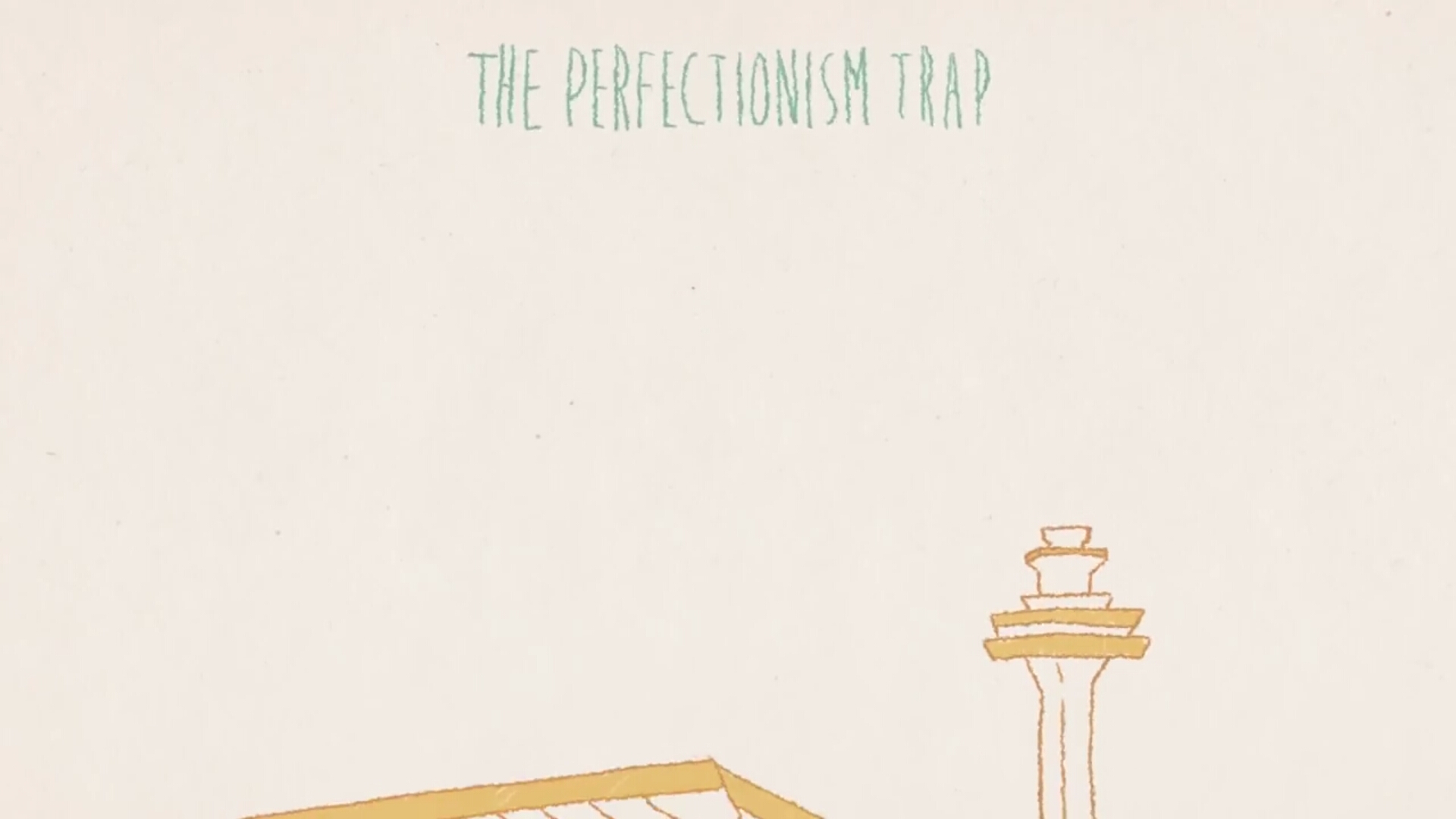The School of Life: The Perfectionist Trap

We typically aim for a particular career because we have been deeply impressed by the exploits of the most accomplished practitioners in the field.
我们会想从事特定职业的原因是受到成功的先进鼓舞。
We formulate our ambitions by admiring the beautiful structures of the architect tasked with designing the city's new airport, or by following the intrepid trades of the wealthiest Wall Street fund manager, by reading the analyses of the acclaimed literary novelist or sampling the piquant meals in the restaurant of a prize-winning chef.
我们的理想,源自於欣赏设计出美丽的建筑,负责新机场建造的建筑师,或是追随华尔街最有钱的财务经理,做出一笔笔了不起的交易,又或是阅读畅销作家的分析报告,或者学习获奖无数的名厨,得到美味佳肴的配方。
We form our career plans on the basis of perfection.
我们以完美为积木,建造出理想的职业城堡。
Then, inspired by the masters, we take our own first steps and the trouble begins.
受到大师启发,我们踏出第一步,开始一段荊棘之路。
What we have managed to design, or make in our first month of trading, or write in an early short story, or cook for the family, is markedly and absurdly, beneath the standard that first sparked our ambitions.
我们渴望的设计蓝图、第一个月的成交笔数、撰写短篇故事草稿,或是为家人煮顿饭,门槛可说是既明显又荒谬地低于初衷。
We who are so aware of excellence end up the least able to tolerate mediocrity, which in this case, happens to be our own.
我们患得患失,其实最后只是折磨看似平庸的自己。
We become stuck in an uncomfortable paradox; our ambitions have been ignited by greatness, but everything we know of ourselves points to congenital ineptitude.
这情形每天都在你我生活中上演。我们陷入不自在的矛盾中;伟大点燃野心的熊熊大火,但我们明知自己资质驽钝。
We have fallen into what we can term the Perfectionist Trap, defined as a powerful attraction to perfection shorn of any mature or sufficient understanding of what is actually required to attain it.
我们落入了「完美主义陷阱」这是一种对完美主义强烈的追求,但同时又缺乏了对于达到目标,所需要的完整或充分的认知。
It isn't primarily our fault.
但这不全是我们的错。
Without in any way revealing this, or even perhaps being aware of it, our media edits out billions of unremarkable lives and years of failure, rejection and frustration even in those who do achieve, in order to serve us up a daily curated selection of peak career moments, which thereby end up seeming not like the violent exceptions they actually are, but like a normal baseline of achievement.
在未深陷完美主义陷阱或是根本还不自觉时,媒体报导已删剪太多成功者不为人知的背后辛酸与无数次失败,遭受拒绝与沮丧之情媒体只是报导高成就者在职业高峰期的每日计画,最终看起来不像是血泪奋斗史,而像是达成成就的常见心路历程。
It starts to appear as though 'everyone' is successful because all those who we happen to hear about really are successes – and we have forgotten to imagine the oceans of tears and despair that necessarily surround them.
一开始塑造人人皆可成功,因为我们平常听到的例子就是如此,而我们忘了去思考成功者背后的泪水与挥之不去的绝望。
Our perspective is imbalanced because we know our own struggles so well from the inside, and yet are exposed to apparently pain-free narratives of achievement on the outside.
我们所知过於偏颇,因为虽然自己了解内心的苦闷,却又同时被外界宣扬的「成功,毫不费力」糖衣影响。
We cannot forgive ourselves the horrors of our early drafts – largely because we have not seen the early drafts of those we admire.
我们无法谅解自己早期工作遇到的波折,原因在于没有看到仰慕者过去辛勤付出的足迹。
We need a saner picture of how many difficulties lie behind everything we would wish to emulate.
我们需要一张够理智的全景,记录下自己努力走过的路。
We should not look, for example, at the masterpieces of art in a museum.
举个例子,我们该欣赏的不是博物馆里的杰作。
We should go to the studio and there see the anguish, wrecked early versions and watermarks on the paper where the artist broke down and wept.
而是去参观艺术大师的工作室里,那些早期充满愤怒、弄得残破不堪的初稿与纸上留下来的水印那些都是艺术家经历崩溃与痛哭后的写照。
We should focus on how long it took the architect before they received their first proper commission (they were over 50), we need to dig out the early stories of the writer who now wins prizes and examine more closely how many failures the entrepreneur had to endure.
我们应该着重在建筑师花多少时间岁月才有第一笔生意洽谈(大多都超过50岁了!)我们应该试着挖掘得奖的畅销作家早期作品、研究创业者遭遇过多少次失败。
We need to recognise the legitimate and necessary role of failure, allow ourselves to do things quite imperfectly for a very long time – as a price we cannot avoid paying for an opportunity one day, perhaps in many decades, to do something that others will consider a spontaneous success.
我们必须正视「失败」的必要与存在,包容自己有一段不完美的人生时期「台上一分钟,台下十年功」或许数十年后,回首过往,大家才会看到我们的「必须非常努力,才会看起来毫不费力」